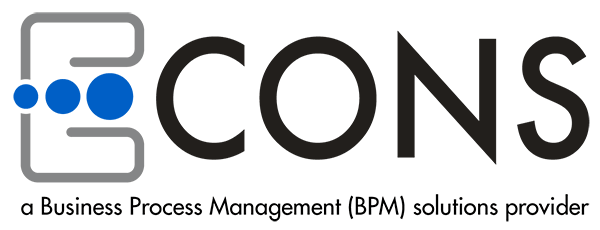The influx of federal funds into Puerto Rico represents an unprecedented opportunity for recovery, modernization, and growth. These grants are the fuel for critical projects that serve our communities. However, this opportunity comes with an immense and non-negotiable responsibility: flawless Federal Funds Management.
Every dollar received is subject to the strictest standards of traceability, compliance, and performance reporting. A failure in any of these areas can lead to devastating consequences—costly audit findings, reputational damage, and even the clawback of funds.
For leaders of government agencies and non-profit organizations, the central question is: Are our internal processes robust enough to withstand this level of scrutiny?
At ECONS Group, we believe that control begins with clarity. That is why we have developed the Federal Funds Management Maturity Assessment. This is not a test, but a strategic tool designed to help you visualize your current operational reality.
By answering the following questions honestly, you will gain a clear picture of your organization’s strengths and, more importantly, identify the hidden vulnerabilities in your processes before they become critical problems.
This is the first step towards achieving the control, traceability, and compliance required to successfully execute your projects and secure your funding for the long term.
The 5 Pillars of Successful Federal Funds Management
Our assessment is structured around five fundamental areas that are critical for the successful management of federal grants. Let’s evaluate your organization’s maturity in each.
Pillar 1: Compliance & Reporting
This is the face your organization presents to the federal government. Your reports must be timely, accurate, and perfectly reconciled. Errors or inconsistencies in this area are the number one trigger for deeper audits.
Self-Assessment Checklist:
- Are federal reports prepared using standardized templates and schedules? (Or is it a chaotic scramble every time a deadline approaches?)
- Do you reconcile financial reports with operational/project data regularly? (Or do the finance numbers and the project managers’ numbers tell two different stories?)
- Are automated tools used for reporting or reminders of deadlines? (Or does your process rely entirely on manual spreadsheets and one person’s memory?)
Interpreting Your Answers:
If you answered “No” to one or more of these questions, your reporting process is highly reactive and carries significant risk. You are likely spending an enormous amount of time on manual data consolidation, increasing the probability of human error, and constantly living in fear of missing a critical deadline. This is not a sustainable model.
The ECONS Group Solution:
We help you architect a streamlined reporting process. We assist in implementing standardized templates, creating automated reconciliation workflows between your financial and project management systems, and setting up dashboards that provide a single source of truth for all your reporting needs.
Don't wait for an audit to test your reporting process.
Pillar 2: Grant Lifecycle Visibility
You cannot manage what you cannot see. Effective Federal Funds Management requires real-time, end-to-end visibility into every grant, from award to close-out. Without it, you are flying blind.
Self-Assessment Checklist:
- Can your agency view the real-time status of each active grant (e.g., budget spent, deliverables, deadlines)? (Or do you have to ask three different people and combine four spreadsheets to get an answer?)
- Are grant milestones and deliverables tracked systematically? (Or is this information living in scattered emails and individual project plans?)
- Are risks to grant performance proactively flagged to leadership? (Or does leadership only find out about a problem after it has already occurred?)
Interpreting Your Answers:
If your answers are “No,” your leadership lacks the critical visibility needed to make informed, strategic decisions. You are likely managing by looking in the rearview mirror, reacting to budget overruns after they happen and being surprised by missed deadlines.
This lack of proactive oversight is a major red flag for federal auditors.
The ECONS Group Solution:
We help you move from scattered data to centralized intelligence. We specialize in implementing real-time dashboards that provide a 360-degree view of your entire grant portfolio.
Our approach ensures that every milestone is tracked, every dollar is accounted for, and every potential risk is identified and flagged before it can derail your project.
Pillar 3: Project Oversight (Execution Phase)
This is where the funds are put to work and the promises of the grant are fulfilled. Flawless execution requires rigorous control over scope, schedule, and budget.
Self-Assessment Checklist:
- Are federally funded projects tracked with live updates on scope, budget, and schedule? (Or is your project status report already outdated the moment it’s printed?)
- Are changes to project plans (“scope creep”) documented and approved formally? (Or do changes happen through informal conversations, leading to budget chaos?)
- Are corrective actions taken promptly when project issues are detected? (Or do problems fester for weeks before they are escalated?)
Interpreting Your Answers:
Answering “No” here indicates a lack of control during the most critical phase. Your projects are likely suffering from “scope creep,” your budgets are unpredictable, and you lack the agility to respond to challenges effectively.
This operational chaos not only jeopardizes your current project but also damages your reputation for future funding opportunities.
The ECONS Group Solution:
Our process compliance services bring discipline to your project execution. We help you implement a robust framework for project oversight, including live tracking tools, formal change control processes, and risk mitigation protocols that empower your project managers to stay on schedule and on budget.
Pillar 4: Project Formulation (Planning Phase)
The success or failure of a project is often determined before a single dollar is spent. A poorly planned project is doomed from the start.
Self-Assessment Checklist:
- Are projects formulated with detailed scopes, budgets, and measurable outcomes? (Or are your project goals vague and your budgets based on guesswork?)
- Are subject-matter experts engaged during project scoping? (Or is the planning done in an executive silo, disconnected from the reality on the ground?)
- Are risk assessments included during project formulation? (Or do you simply hope for the best and react to problems as they arise?)
Interpreting Your Answers:
If you answered “No” to these questions, your organization is likely funding projects that are built on a foundation of sand. They lack clear direction, have unrealistic budgets, and are vulnerable to predictable risks that were never identified. This is a primary cause of failed projects and wasted federal funds.
The ECONS Group Solution:
We facilitate a structured and disciplined project formulation process. We guide your team through workshops to define crystal-clear scopes, develop data-driven budgets, and conduct thorough risk assessments. We ensure your projects are designed for success from Day One.
Don't wait for an audit to test your reporting process.
Pillar 5: Close-Out Practices
The final 10% of a grant lifecycle can be the most challenging. A weak close-out process can jeopardize your final payment and damage your credibility with the funding agency.
Self-Assessment Checklist:
- Are grant close-out activities initiated well before the final deadline? (Or is it a last-minute panic to gather all the paperwork?)
- Are final reports, financial reconciliations, and asset inventories prepared in advance? (Or are these tasks left for the final, stressful week?)
- Are lessons learned and best practices documented and shared after close-out? (Or does your organization make the same mistakes on the next grant?)
Interpreting Your Answers:
Answering “No” indicates that your organization lacks a formal close-out strategy. This not only creates immense stress but also increases the risk of submitting incomplete or inaccurate final reports, which can trigger audits and payment delays.
Furthermore, you are losing invaluable institutional knowledge that could make your next grant application and execution even more successful.
The ECONS Group Solution:
We help you implement a proactive close-out checklist and timeline that begins 90-120 days before the grant’s end date.
We facilitate the final reconciliations and help you conduct “lessons learned” sessions that turn the experience of each grant into a powerful asset for your organization’s future.
A successful project begins with a flawless plan.
From Assessment to Action: Interpreting Your Results and Taking Control
You have completed the self-assessment. Now, look at your answers. How many times did you answer “No”?
- If you answered “No” to 1-4 questions: You have some strong processes in place, but there are clear vulnerabilities that need to be addressed.
- If you answered “No” to 5-9 questions: Your organization is operating with significant compliance and operational risk. It is not a matter of if you will face a major issue, but when.
- If you answered “No” to 10 or more questions: Your Federal Funds Management processes require an immediate and comprehensive overhaul.
The path forward is not to buy a piece of software and hope it solves everything. The solution is to partner with an expert who can help you re-architect your processes from the ground up.
At ECONS Group, this is our core competency. We are not just accountants or consultants; we are strategic architects of process and compliance.
We bring an integrated approach that combines financial expertise, operational best practices, and technological savvy to build a robust and resilient framework for your organization.
Don’t wait for an auditor to tell you where your weaknesses are. Take control of your processes now. Contact ECONS Group today to schedule a confidential review of your Federal Funds Management Maturity Assessment. Let us help you build the systems that will protect your funding and guarantee the success of your mission-critical projects.




